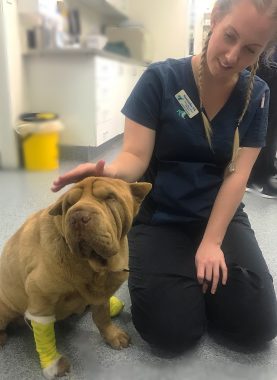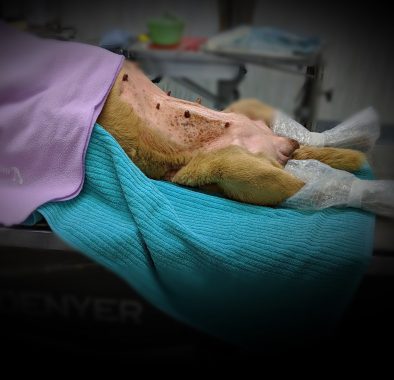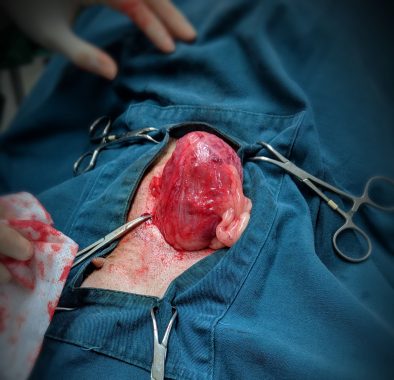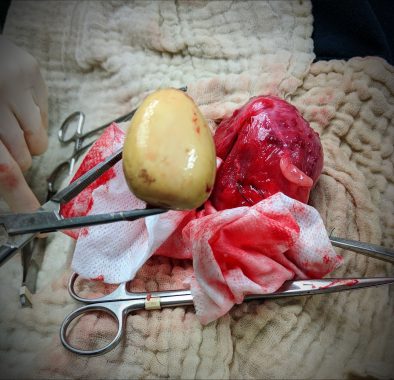On a Tuesday night, Indies owners decided it was time to have Indie checked over by a Vet as she had been straining to urinate for some time, and would often then leak urine while resting. Other than that, Indie was in good health with no other concerns.
Dr Alanna examined Indie, and palpated a large bladder, which leaked urine with pressure. Indi also had a high temperature, indicating she had an infection somewhere inside her body.
A sample of urine and blood were taken immediately run in clinic. After analysis of the urine, it revealed she had not only blood and protein present, but also a high white blood cell count indicating an infection. Her bloods also revealed she was struggling with Azotemia (an excess level of nitrogen-based substances compounds such as urea, creatinine, and other body waste compounds in the blood)
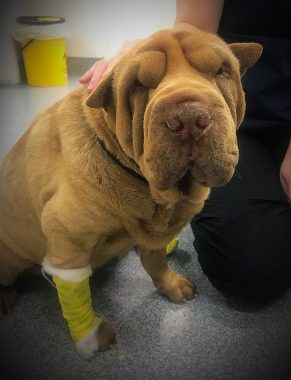
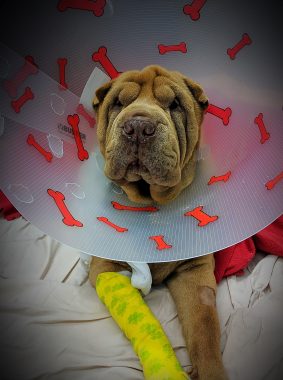
Azotmeia is caused by many things including; Low blood volume or blood pressure infections, fever, trauma, toxicity, acute or chronic kidney disease or a urinary obstruction.
With these results Dr Alanna couldn’t rule out Indie was suffering from either renal disease, bladder stones, bladder neoplasia (cancer) or a urinary tract infection progressing to pyelonepritis (sudden and severe kidney infection). Indie was admitted and started on intravenous fluids, antibiotics, pain relief and booked for an ultrasound and radiographs the following day.
The next morning Dr Amy was Indies Vet and Dr Amy was pleased to see Indie had eaten overnight, but Indie was still quiet and her temperature still high despite the antibiotics and fluids. Dr Amy palpated the bladder, and located a mass mid abdomen.
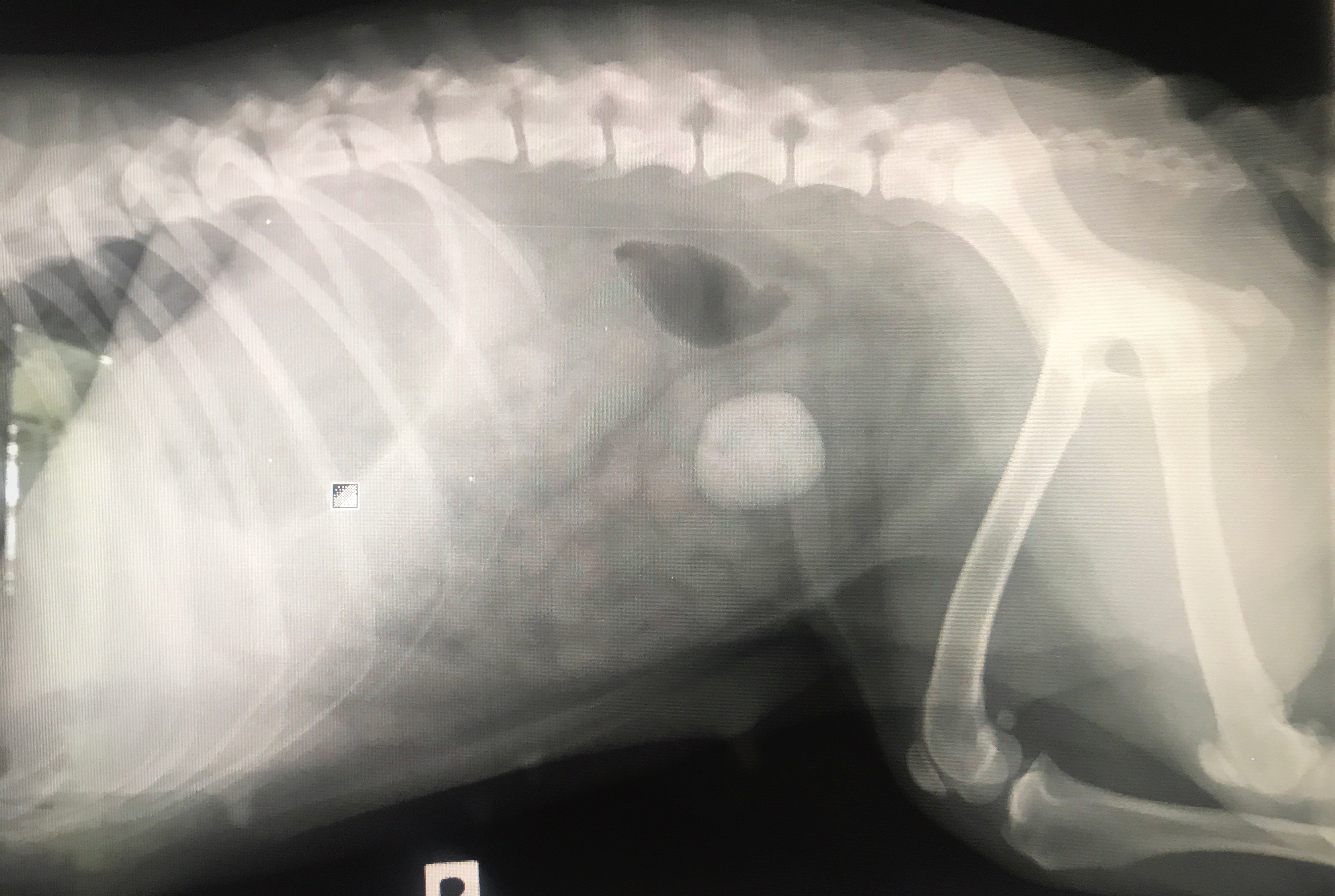
Radiographs were taken and immediately showed a single, large urolith in bladder (also known as a bladder stone).
Bladder stones or uroliths are a common occurrence in animals, especially in domestic animals such as dogs and cats. The stones form in the urinary bladder in varying size and numbers and can be caused by infection, dietary influences or genetics. Stones can form in any part of the urinary tract in dogs and cats, and can contribute to kidney infrections and chronic renal failure. Many animals will live happy long, lives without owners ever being aware, however is often noticed when pets start straining to urinate, leaking urine, or passing blood in urine. Smaller stones may become lodged in the urethra, especially in male cats, causing urinary tract obstruction and the inability to urinate. This condition causes acute renal failure, hyperkalemia (high potassium), septicemia, and death within a few days.
Indie was scheduled for a cystotomy (surgery to remove bladder stone from bladder) with Dr Amy and was prepared for surgery by our Senior Nurse Emily. Indie was stable, however her bladder was very thickened due to such a long ongoing inflammation as well as filled with thick green/yellow necrotic material. The stone was removed successfully and then the bladder had to be flushed with over 1L of sterile solution to remove any remaining particles. The bladder then was surgically sutured back up and other organs examined for any damage.
On further examination it was discovered her uterus also had small masses so it was advised that Indie have her uterus removed (equivalent to being spayed).
Indies surgery was extensive, but with both the very capable Dr Amy and experienced Nurse Emily – her anaesthetic was uneventful and recovered well.
The stone was then sent to an external laboratory so it could be determined which type of stone it was as there are many types. This stone would have been accumulating for years and if hadn’t received veterinary treatment, would have been fatal.
Indie is now recovering at home with her loving family and is on a special urinary diet (Hills Prescription C/D) to help dissolve and reduce any stones forming in the future
